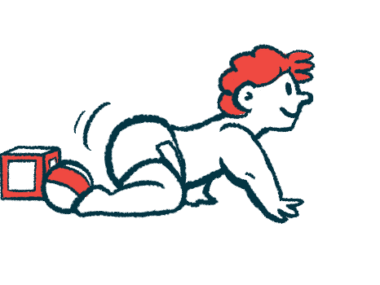Pompe Disease and Surgery
Written by |

Patients with Pompe disease may have to undergo surgery requiring general anesthesia. Below is information about the disease, why patients may need surgery, and the potential risks of anesthesia.
What is Pompe disease?
Pompe disease is a rare genetic disease caused by a mutation in the GAA gene. This gene contains the information necessary to make an enzyme called acid alpha-glucosidase (GAA). Cells use this enzyme to break down glycogen (a complex sugar) into glucose (a simple sugar) for energy. When the GAA gene has a mutation, the body either does not produce enough GAA enzyme or produces dysfunctional versions. This leads to a buildup of glycogen, especially in muscles. The buildup causes muscle damage and leads to the symptoms of Pompe disease.
Why might patients require surgery?
A patient with Pompe disease may require surgery for a number of reasons.
The damage to skeletal muscles can lead to weakness and loss of mobility. The decrease in muscle strength around joints can lead to a number of orthopedic problems such as scoliosis, hip dysplasia, deformities of the feet, and contractures. All of these conditions may require surgery.
Many patients with Pompe disease receive enzyme replacement therapy. Since these intravenous (IV) injections are delivered frequently and usually throughout a patient’s life, many will undergo surgery to introduce a central line (an extended IV inserted into a vein).
Patients with Pompe disease may have difficulty swallowing. In serious cases, they may need a feeding tube that goes through the abdominal wall directly into the stomach (gastrostomy) to ensure that they are getting sufficient nutrition without the risk of aspiration (food or water going into the lungs). Surgery will be necessary to place the feeding tube.
Like other children, those with Pompe disease may also experience frequent ear infections (otitis media) that may require surgical implantation of ear tubes to drain fluid.
Patients with Pompe disease may also experience frequent falls due to muscle weakness or imbalance, and injure themselves. Doctors may need to treat some injuries with surgery.
Why is surgery riskier for Pompe patients?
Patients with Pompe disease can be at an increased risk of complications during anesthesia. These may be related to heart or respiratory function.
Patients often have an enlarged heart and a buildup of glycogen, which can lead to high blood pressure and uneven firing of the heart, resulting in arrhythmias. Anesthetic induction can result in reduced blood flow to and from the heart, and can worsen arrhythmias.
Anesthetics can also worsen respiratory problems caused by decreased strength in the diaphragm and other muscles related to breathing.
Since patients are at an increased risk, it is recommended that, whenever possible, multiple surgeries be performed at one time, and regional anesthetic be used instead of a general anesthetic to limit the risks. Finally, surgery should take place at institutions that have a history of dealing with patients with Pompe disease or similar conditions.
Last updated: Oct. 6, 2020
***
Pompe Disease News is strictly a news and information website about the disease. It does not provide medical advice, diagnosis, or treatment. This content is not intended to be a substitute for professional medical advice, diagnosis, or treatment. Always seek the advice of your physician or other qualified health provider with any questions you may have regarding a medical condition. Never disregard professional medical advice or delay in seeking it because of something you have read on this website.


